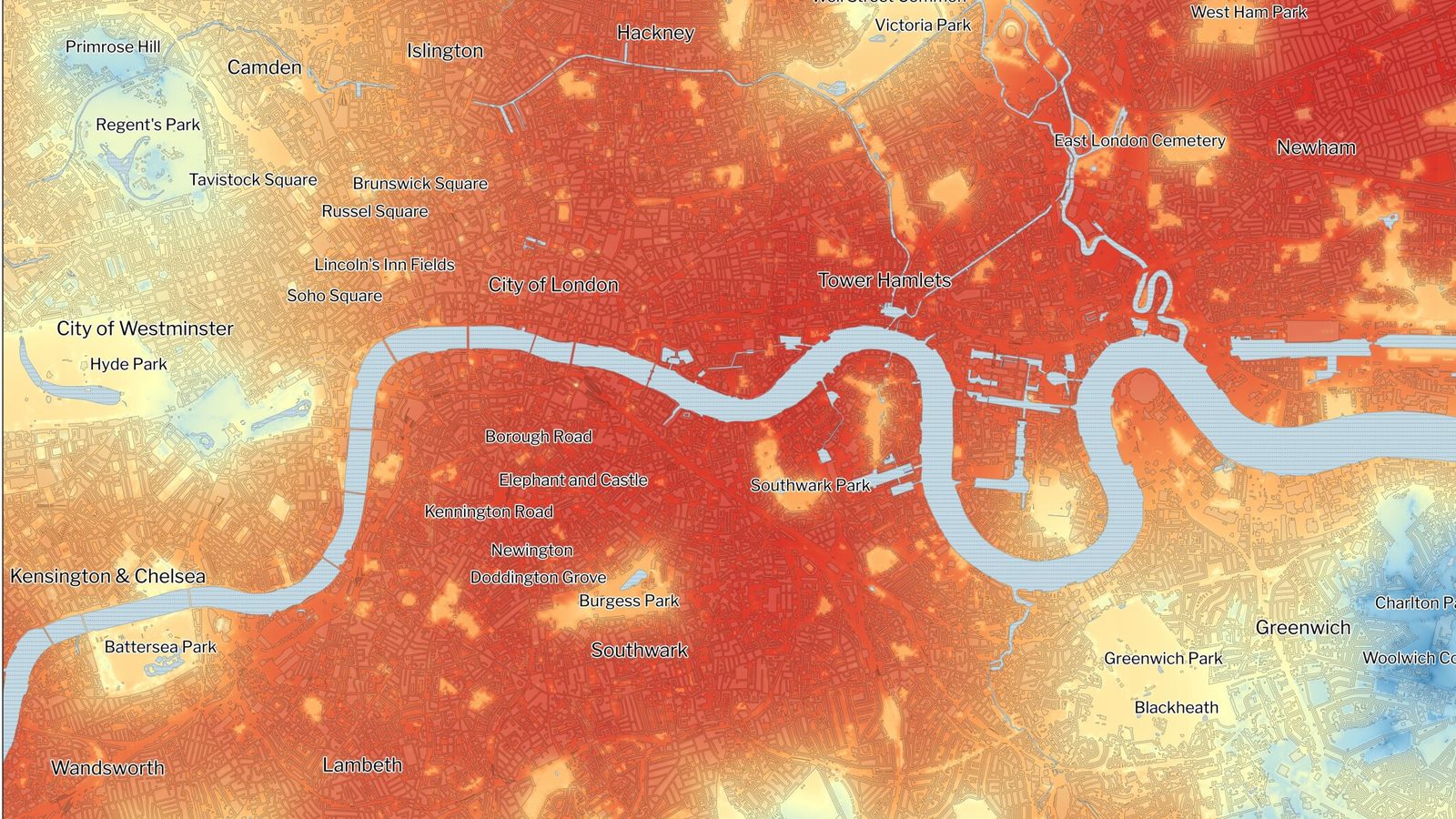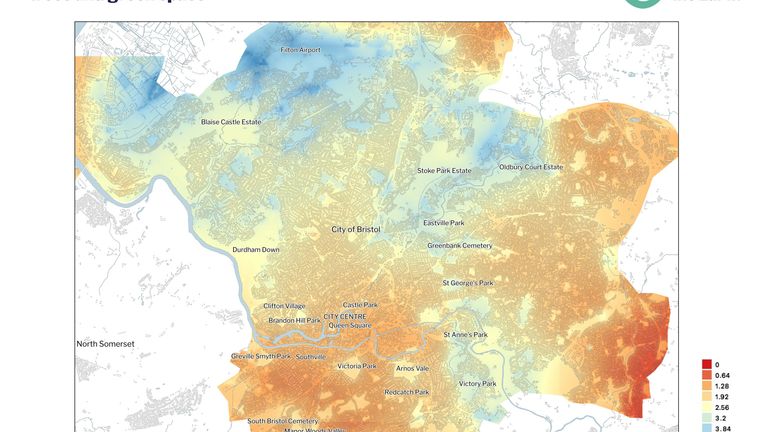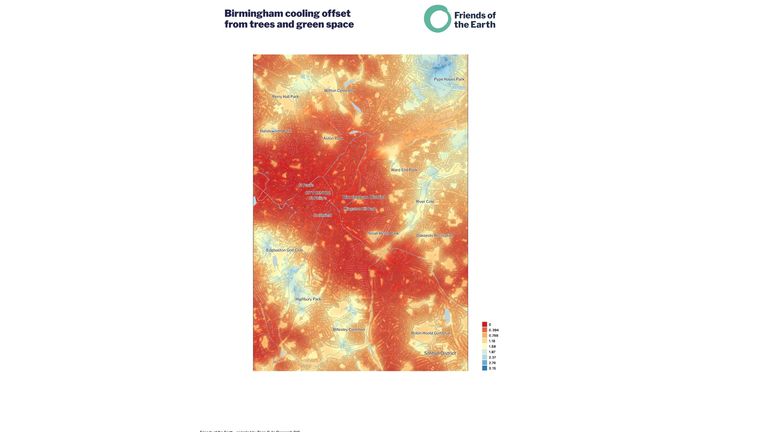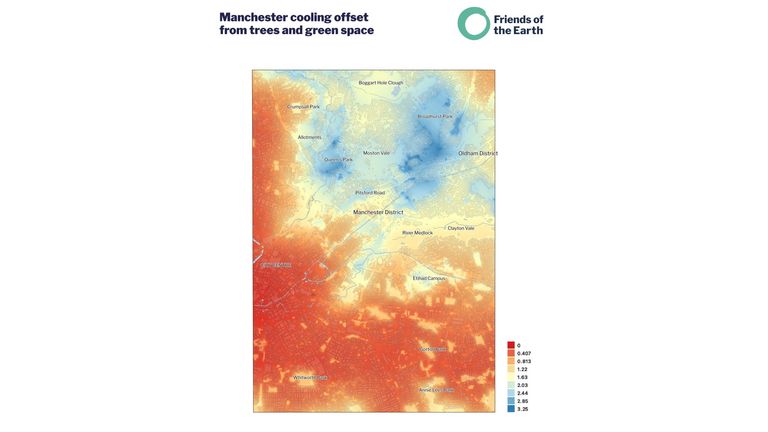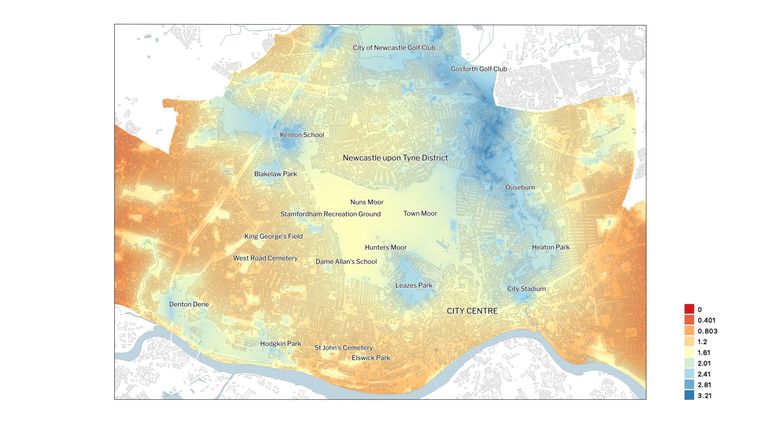One year since record-breaking temperatures hit the UK, new heatmaps published today visualise the dramatic cooling effect of trees in some urban areas.
The maps paint a stark picture of how different communities suffer more or less from heat depending on the abundance of green space.
The inner-city areas lacking parks and green canopies were 5C warmer during last year’s hottest day on record than those with more tree cover and plant life, the analysis by TerraSulis on behalf of Friends of the Earth found.
The new maps of five cities – London, Manchester, Birmingham, Bristol and Newcastle – illustrate that trend, with the hottest areas in each city shaded dark red, and the coolest, most nature-dense areas a light blue
Mike Childs, head of science, policy and research at Friends of the Earth, said: “We know that extreme weather, including heatwaves, is become more frequent and severe due to the climate crisis.
“But not everyone is affected equally, with the most marginalised communities the hardest hit in the UK and overseas.”
He added that planting more trees would help cool communities, and insulating homes would help keep homes cool in the summer as well as warm in the winter.
It comes as the Environmental Audit Committee of MPs today publishes a report warning the country is off track with tree-planting targets.
Dr Mike Rivington, senior scientist at the James Hutton Institute, who specialises in land-use and climate change, said trees cool the air around them by extracting water below the ground and evaporating it through respiration.
“If we compare this to concrete and tarmac surfaces, which prevent evaporation of water from soils, whilst also absorbing a lot of solar radiation energy and storing up heat (concrete is particularly good at this), we can see that there will be great benefit from increasing the number of trees and open greenspace in urban areas.”
There is also “good evidence” that trees and open greenspace in urban areas improve mental health, he said.
Cllr Linda Taylor, environment spokesperson for the Local Government Association said: “Councils understand that adapting to climate change is going to be as important as reducing carbon emissions.”
“Additional tree cover is just one of many methods councils use to bring down temperatures in urban areas,” she added, along with things like laying out sand to soak up melted tar on the roads and reduce accidents.
